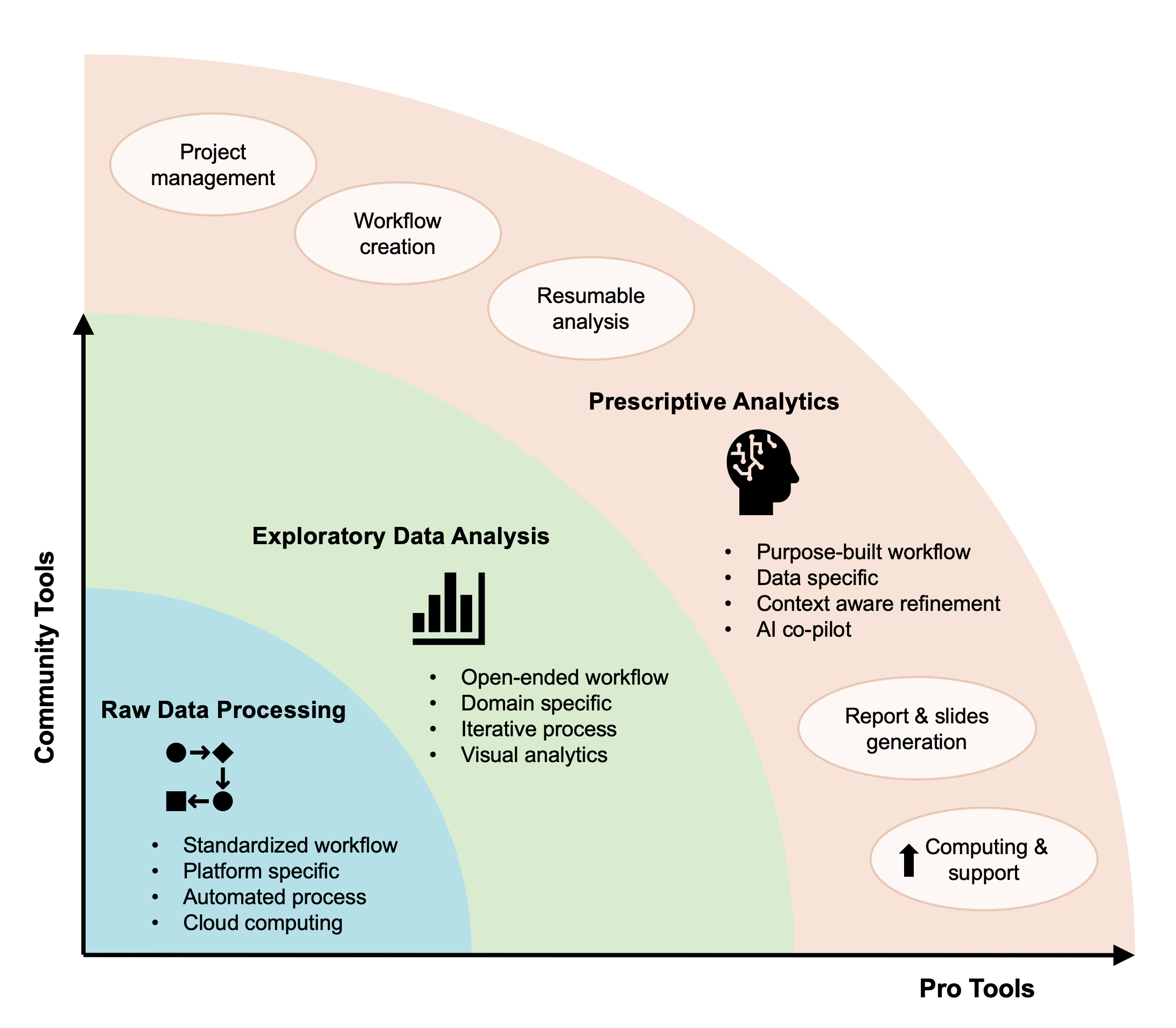|
 |
AI technologies will transform omics data analytics. The main question is how we can leverage AI to improve our data understanding and decision making, while avoid the issues such as hallucinations and bias. We take three core measures as described below:
- Using retrieval augmented generation (RAG) technology - RAG leverages our comprehensive training materials for different omics data analysis and user feedback;
- Grounding - the AI generated content will be based firmly on the templates, user inputs and the current analysis context;
- Co-piloting - the analysis report and slides (i.e. text and figures) are accessible and understandable to both human researchers and AI for collaboration, as compared to navigating across different web pages
 |
The regular prices for annual subscription (in USD) of different pro tools are given below. If you have taken our Omics Data Science course, you are eligible for a membership discount on the regular price. Please use the pre-registration page to reach us.
|
| Terms of Service | Cookie Policy | Privacy Policy |

